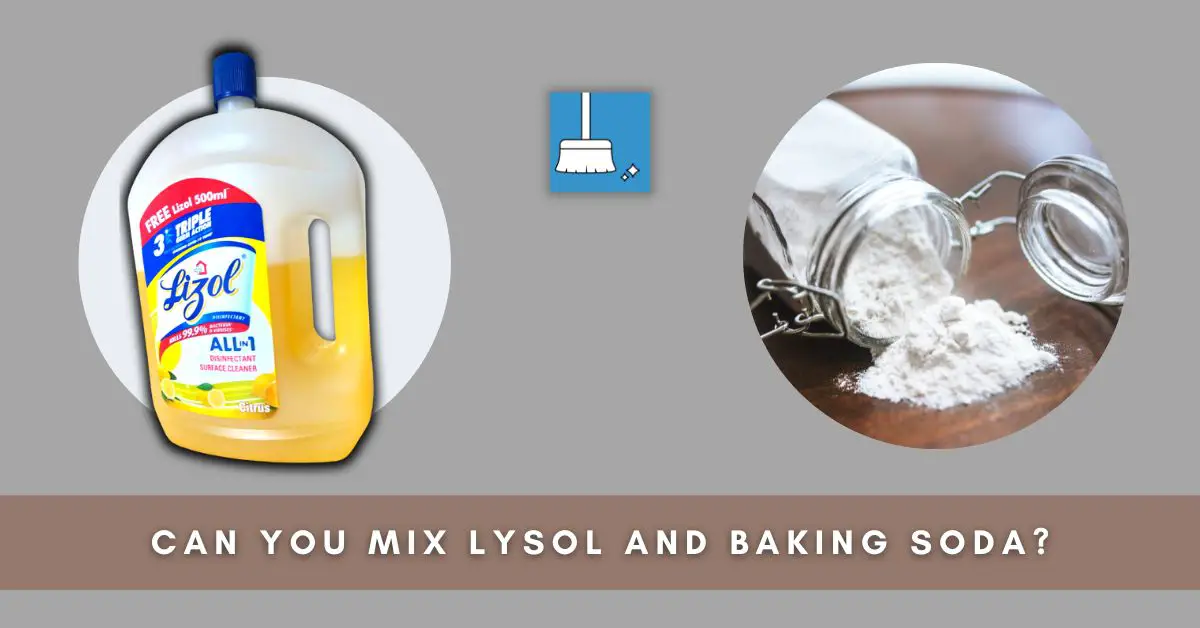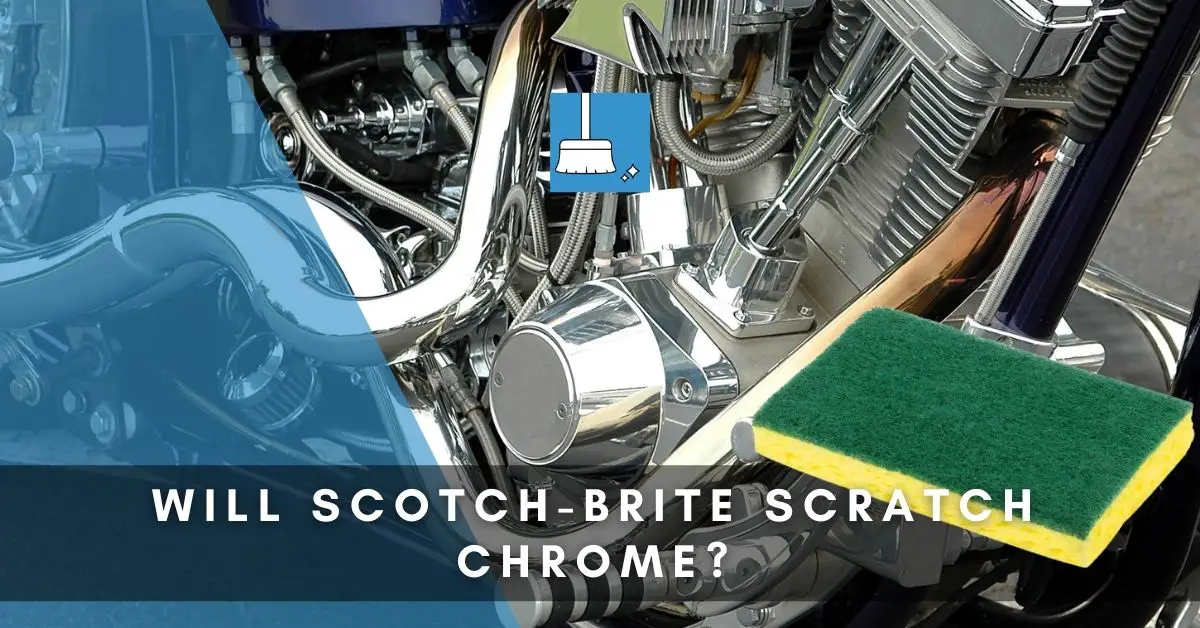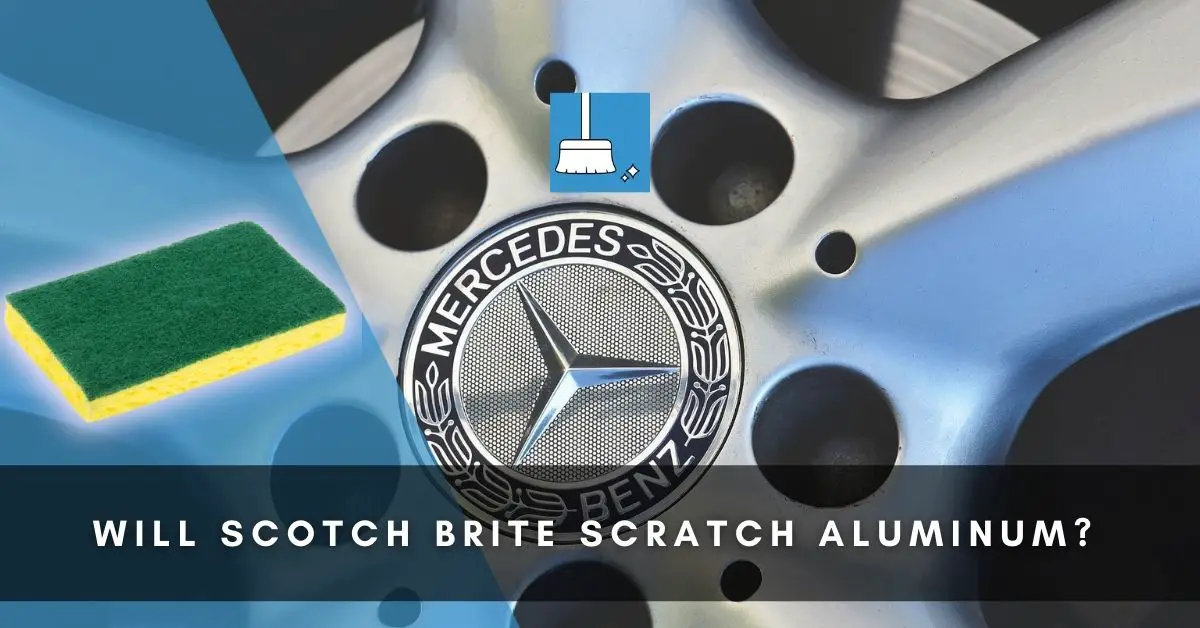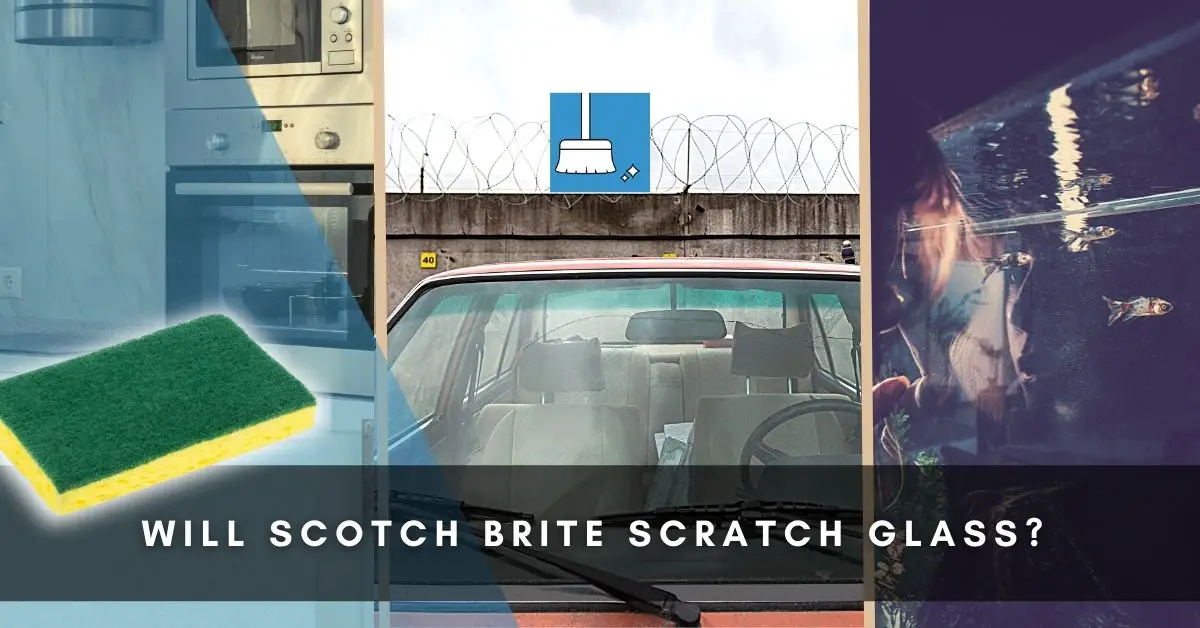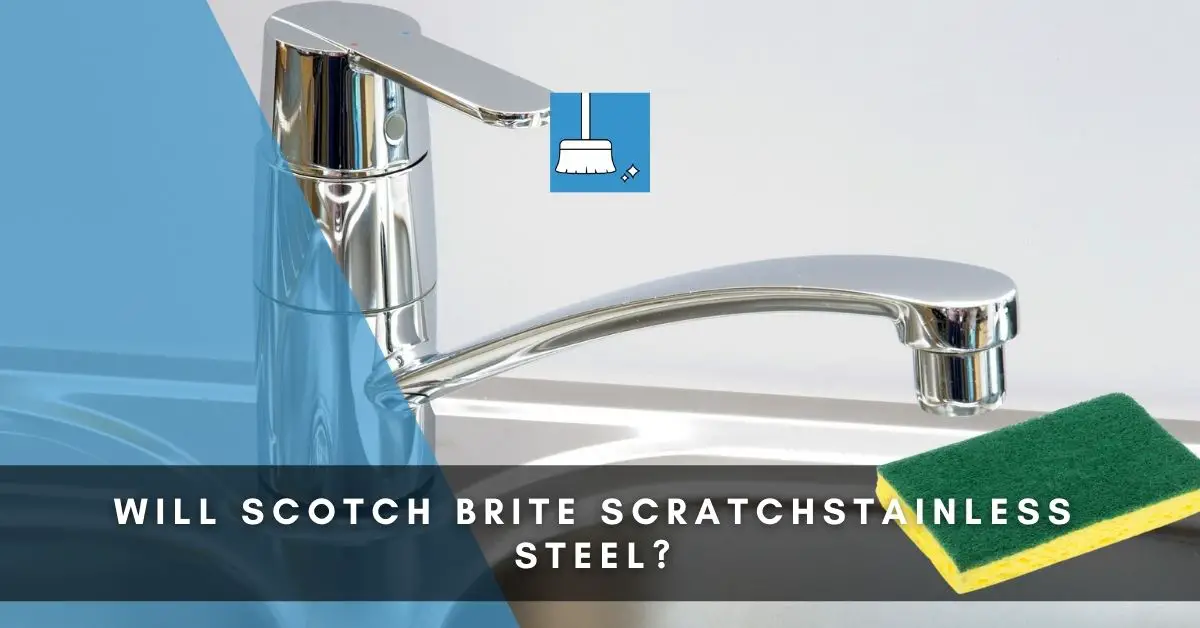Lysol is a brand that produces a wide range of cleaning and disinfecting products from wipes, to toilet cleaners to mold removers and others.
Their precise formulas are made from years of research to create a balance so the question is, can Lysol be mixed with baking soda?
Can You Mix Lysol and Baking Soda?
Lysol has a wide variety of products with different ingredients. Some can be mixed with baking soda to make a better concoction that is more effective in cleaning while others form a toxic chemical that can produce toxic fumes.
The products react to being mixed with baking soda as follows:
Lysol All Purpose Cleaner + Baking Soda
If your aim is to try and solve a cleaning problem these two together will not do anything significant for you.
This is because Lysol all-purpose cleaner and baking soda will largely ignore each other when mixed and will have no reaction with each other.
Baking soda is mostly used to dissolve grease and dirt. Lysol All-purpose cleaner also does the same thing (besides disinfecting & freshening). So the effect of adding baking soda will be very less.
Lysol Power Toilet Bowl Cleaner + Baking Soda
Yes, it can be mixed with baking soda but the mixture will not be effective in cleaning.
The active ingredient in the toilet bowl cleaner is hydrochloric acid which reacts with baking soda to make salt, water, and carbon dioxide gas.
Since the concentration of carbon dioxide is negligible, there is no safety concern for not mixing the two together.
Baking soda, when added to this product, will not add to the effectiveness of the cleaning agent. The baking soda will most likely neutralize the active ingredients in the toilet bowl cleaner rendering it ineffective.
Baking soda can be used to clean grease and dirt while the Lysol toilet bowl cleaner gets rid of rings, stains, and scum.
If you want to use both to wash your toilet, it is better to use baking soda first and let it sit for some time in the bowl to get rid of some of the stains. Wash it away then use the Lysol power toilet bowl cleaner as you usually do. This could have a better result than using them together.
Lysol Hydrogen Peroxide Multi-Purpose Cleaner + Baking Soda
Yes. Most hydrogen peroxide-based cleaners react well to being mixed with baking soda.
When you mix Lysol Hydrogen peroxide cleaner with baking soda, the reaction is exothermic (produces some heat) and releases a small amount of carbon dioxide. Once the baking soda fully dissolves, the mixture is a very powerful cleaner.
This mixture is effective in cleaning tiled surfaces, especially bright colored tiles, and reverting them to their original color.
This mixture is also effective in cleaning up soap scum & grease deposits from shower walls, shower curtains, areas around sinks, and shower heads. It also gets rid of hard water stains on surfaces.
However, only make enough solution to use one time as the mixture should not be stored. This is because it may continue to release carbon dioxide, which will build up in the storage container and eventually explode.
Lysol Laundry Sanitizer + Baking Soda
Yes, Lysol laundry sanitizer can be used with baking soda for fresh-smelling clothes. The baking soda will not affect the performance of the laundry sanitizer. It will amplify the results of the wash.
Lysol laundry sanitizer kills 99.9% of bacteria and viruses and is made in a gentle formula that does not react adversely when mixed with baking soda. The bicarbonate in the baking soda will help in regulating the water’s pH level and helps in getting rid of heavy odor in gym clothes, socks, underarm areas of clothing, and even shoes.
The baking soda works best as a pre-soak. Before putting the clothes into the machine to be cleaned, soak the clothes in a concoction of baking soda and water. After a few minutes, or hours (depending on how much time you have) add the laundry to the washing machine and add the laundry sanitizer.
Lysol Disinfectant Concentrate + Baking Soda
The Lysol disinfectant concentrate (once diluted) and mixed with baking soda will not add to the effectiveness of the disinfectant.
The disinfectant, apart from killing bacteria and viruses, deodorizes and acts on cutting grease and dirt. Baking soda also works in cutting & disintegrating grease. So, mixing these two won’t have any impact.
Lysol Mold and Mildew Remover + Baking Soda
You can mix this Baking soda and this mold remover as it does not create any dangerous reaction.
Lysol Mold & Mildew Remover is designed to remove soap scum, limescale, stains, mold & mildew while also killing bacteria and viruses. While baking soda can tackle grease and dirt.
If you would still want to use the baking soda to remove mold, use it beforehand by creating a mixture of baking soda and water and scrubbing the desired surface. After, wipe or rinse it away then use the Lysol mold and mildew remover to get rid of whatever has been left behind.
Lysol Power Bathroom Cleaner + Baking Soda
Yes. The Lysol power bathroom cleaner can be mixed with baking soda for a more effective scrub. This cleaner works almost like the Lysol Mold & mildew remover.
The mixture creates a thicker paste with corrosive, fine particles that lead to more effective cleaning of bathtubs, sinks, floors, walls, and any other surface that needs to be cleaned.
This mixture helps in getting rid of odors, scum, lime scale, mold, and mildew while giving the surface a superior shine.
Where Should You not Use Baking Soda?
Baking soda can not be mixed with certain chemicals due to the toxic chemical and fumes that will be emitted. This includes:
1- Marble: Baking soda removes the protective layer from the marble surface and leaves scratched in time.
2- Antique silver: Baking soda can damage the finish of precious antique silver pieces.
3- Gold Plates: Baking soda is abrasive enough to scratch soft metals such as gold.
4- Aluminum cookware: When baking soda is left to sit on the aluminum surfaces, it oxidizes and changes the color of the metal.
What Should Not be Mixed with Lysol?
Most Lysol products should not be mixed with:
1- Bleach
Bleach on its own is a Potent corrosive chemical and if mixed with Lysol, the chemical becomes very toxic to use, especially without gloves.
The compound in Lysol (2 benzyl-4 chlorophenol) is oxidized by bleach and the mixture lets out a toxic fume that can be irritating, especially to the eyes and nose.
The fume should not be inhaled as it may cause a headache, irritation in the lungs leading to coughing, difficulty breathing, watery irritated eyes, and a burning sensation in the nose.
2- Vinegar
Lysol mixed with vinegar produces an awful-smelling mixture that releases a fume. This gas is toxic and may even eat away at whatever you are trying to clean such as clothing fabric, seats, carpets, etc.
Safety Precautions
Some safety precautions should be taken when dealing with cleaning agents.
1- Wearing Gloves
If you are creating a mixture and not sure of how it will react, always put on gloves to avoid getting chemical burns or having to deal with harsh chemicals on your hands.
It is generally good practice to use gloves when dealing with bleach and other cleaning agents.
2- Properly Ventilating the Area
Ensure that your space is well ventilated. This is because detergents usually release fumes into the environment, which could labor your breathing.
Do this, especially when working with cleaning agents that contain bleach to avoid contaminating the air.
3- Leaving If It Gets Too Much
If you begin to notice shortness of breath or chest pains after creating a chemical mixture, open all doors and windows and leave the room.
Give the area time to aerate then come back in and rinse your cleaner with water if you had already placed it on a surface or toss it away if it is still in a contained area.
Also, ensure that children and pets are not in the area while you use a cleaning agent with a strong smell.
4- Washing Your Hands Thoroughly
When using a cleaning material that does not ask for you to use gloves, such as in the case of cleaning wipes, ensure that you thoroughly wash your hands with soap and running water.
This is because the chemicals remain on your hands after use and can contaminate food your touch with bare hands or irritate your skin.
Final Thoughts!
Lysol has great cleaning agents that can be used on their own without mixing with any other ingredient. If you have to mix with another ingredient, ensure you do adequate research on whether the mixture is toxic or not.
Avoid disposing of expired Lysol products with other cleaning materials.
Here, check out if baking soda can be mixed with fabuloso multi-purpose cleaner.

